Symbiosis: China the leading customer and Saudi Arabia the vital oil supplier
Energy security and ensuring that oil and gas retain a significant share of the global energy mix for some time to come are strong ties that bind China-Saudi Arabia relations. Coupled with collaborative opportunities in growth areas such as renewable energy and electricity generation, their partnership seems to be going from strength to strength.
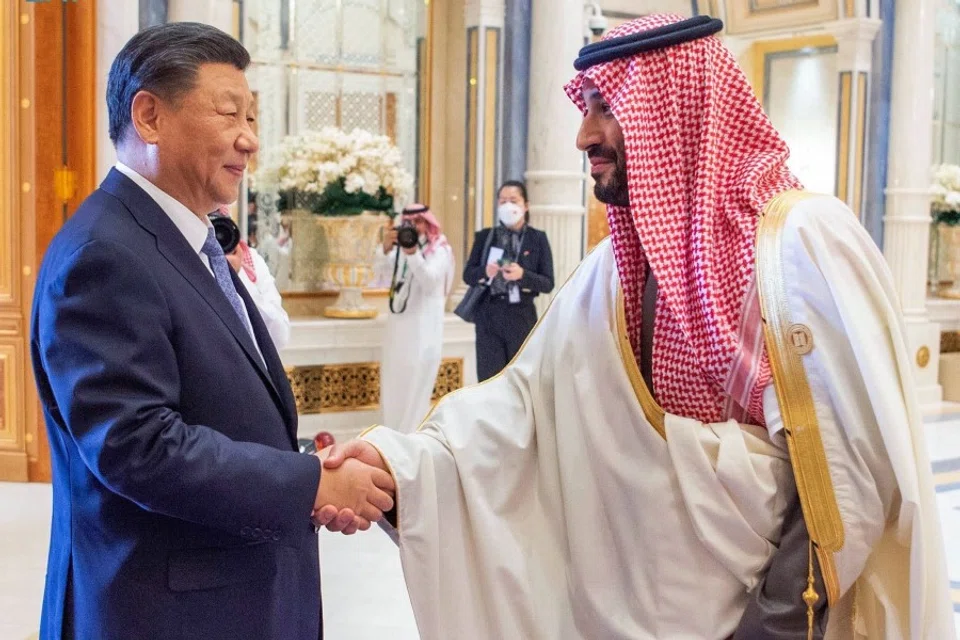
Xi Jinping's visit to Saudi Arabia in early December 2022 occurred amid strained relations between Washington and Riyadh and intensifying US-China strategic competition. Importantly, the visit also took place during a period of major turmoil in oil and gas markets, which was exacerbated by Russia's invasion of Ukraine.
Xi's arrival in the Saudi capital to much fanfare and wide media coverage capped a momentous week for global energy markets with the introduction of a Western price cap and partial embargo on Russian petroleum exports.
For Saudi Arabia as for China - the former the world's largest oil producer and a vital supplier of oil to China, and the latter the world's top oil importer and the leading customer for Saudi oil - the high degree of volatility that has gripped the market is enormously consequential.
The Kingdom accounts for roughly one-fifth of China's total crude oil purchases and China for one-quarter of Saudi oil exports.
Energy security an imperative
Clearly, energy security concerns are driving China and Saudi Arabia to strengthen and widen the scope of their energy ties. Xi's recent visit to the Kingdom culminated in the release of a joint statement by China and Saudi Arabia acknowledging that energy security is a shared priority and confirming the willingness of the two countries to work together to support international oil market stability.
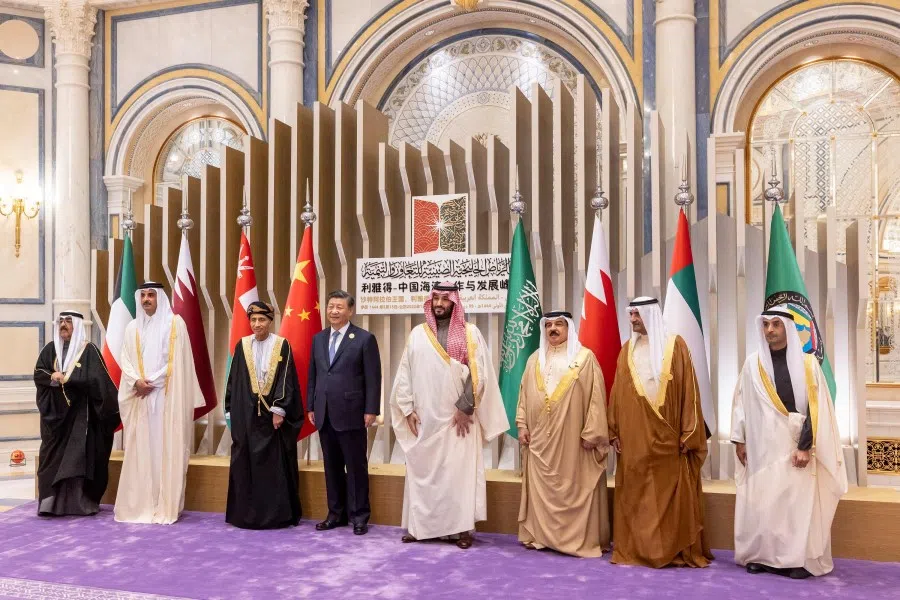
In the keynote speech Xi delivered to the China-Gulf Cooperation Council (GCC) summit during the visit, he declared China ready to work towards a "new paradigm of all-dimensional energy cooperation". China and Saudi Arabia have already laid a firm foundation for that undertaking.
The Sino-Saudi relationship, elevated to a "comprehensive strategic partnership" in 2016, is anchored in "stable long-term energy cooperation" and underpinned by the oil trade. The Kingdom accounts for roughly one-fifth of China's total crude oil purchases and China for one-quarter of Saudi oil exports. Saudi Aramco has annual supply deals with half a dozen Chinese refiners including Sinopec, CNPC, CNOOC, Sinochem, Norinco as well as private refiner Zhejiang Petrochemical Corp.
In addition, over the years Sino-Saudi energy cooperation has expanded into the downstream sector through collaboration between oil giants Saudi Aramco and Sinopec, which partnered to form the Yanbu Aramco Sinopec Refining Company Ltd. (YASREF) and to develop the Fujian Refining and Ethylene Project (FREP).
Both sides view oil and gas retaining a significant share of the global energy mix for decades and warn of the energy security risks of rushing to displace hydrocarbons with clean energy too quickly.
A measured green transition
The China-Saudi energy partnership rests on a common vision for tackling the green transition. Both sides view oil and gas retaining a significant share of the global energy mix for decades and warn of the energy security risks of rushing to displace hydrocarbons with clean energy too quickly.
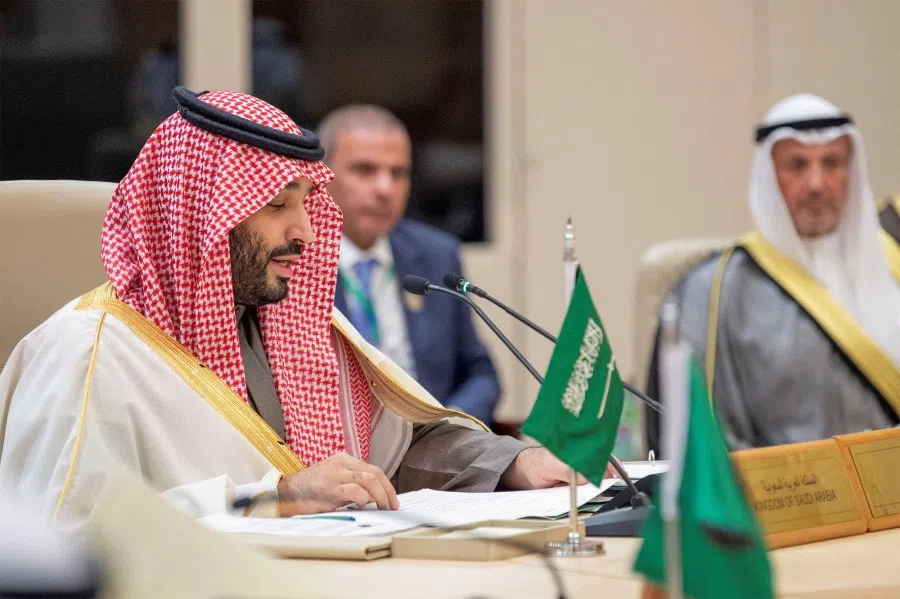
Addressing the Jeddah Security and Development Conference last August, Crown Prince Mohammed bin Salman (MBS) called for "adopting a 'balanced approach' through a gradual and responsible transition towards more sustainable energy sources". Similarly, Xi asserted at the opening session of the 20th National Congress of the Chinese Communist Party (CCP) in October that China "will advance initiatives to reach peak carbon emissions in a well-planned and phased way, in line with the principle of getting the new before discarding the old".
MBS and Xi have thus made clear that the pathway to decarbonisation necessarily involves continuing to exploit conventional energy to stabilise domestic and world economies, while integrating clean technologies into oil and gas sector operations to mitigate carbon emissions. There are strong indications that each side regards the other as a critically important partner in adapting to the energy transition and pursuing new opportunities associated with it.
Crucial partners
China is central to Aramco's downstream growth strategy in Asia. That strategy entails diversifying into more specialised high-value, lower-carbon intensive chemical products.
In March 2022, Aramco made a final investment decision to participate in the development of an integrated refinery and petrochemical complex in Panjin City, Liaoning Province. In December, the company signed a framework agreement with China Petroleum & Chemical Corporation (Sinopec) to construct a refining and petrochemical complex in Gulei, Fujian Province.
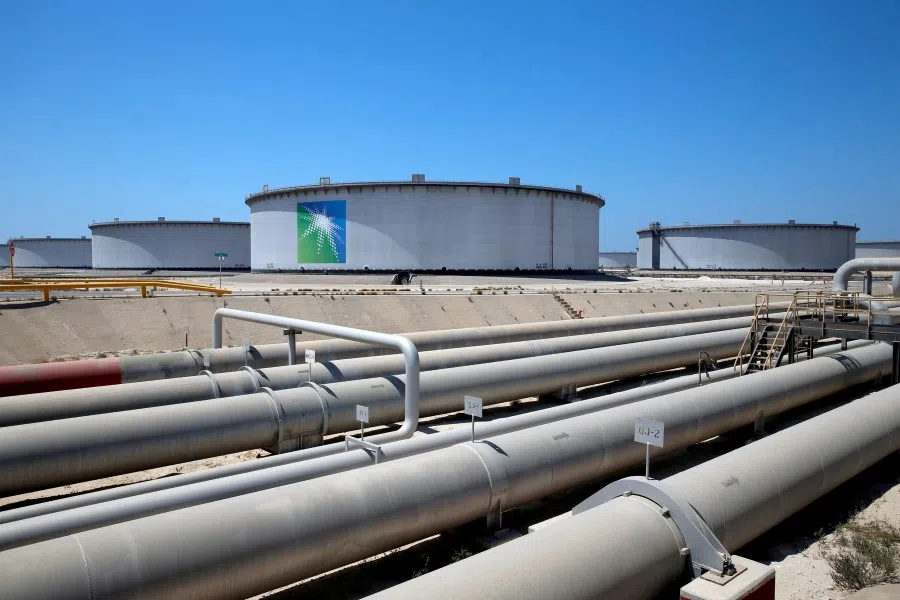
Building on its longstanding collaboration with Aramco, Sinopec is seeking to broaden and deepen its involvement in the Kingdom's energy sector. In December, for example, Sinopec, Aramco, and SABIC signed a Memorandum of Understanding (MOU) to study the economic and technical feasibility of developing a new liquids-to-chemicals complex, to be integrated with an existing refinery in Yanbu, Saudi Arabia.
The recent deals struck by Jinko Power Technology and Sungrow - solar PV and battery storage system manufacturers, respectively - to support the development of Saudi solar projects are indicative of the deepening of Sino-Saudi cooperation in renewable energy and electricity generation. State-run China Energy Engineering Corp (CEEC) is building a 2.6-GW solar power station in Al Shuaiba in Saudi Arabia, owned by utility developer ACWA Power, which has partnered with Chinese companies for well over a decade in renewable and desalination projects.
China and Saudi Arabia are also poised to explore and expand cooperation to develop other new energy sources. Aramco is pursuing opportunities to collaborate with the Shandong Energy Group on blue hydrogen and ammonia, synthetic fuels, and carbon capture utilisation and storage (CCUS). Forging a hydrogen partnership is one of the potential pathways under consideration for extending strategic cooperation between Aramco and Sinopec.
There is scope for cooperation in the digital transformation of the Kingdom's oil and gas industries as well, where Aramco is already deploying artificial intelligence (AI) to make their operations more efficient, monitor and reduce CO2 emissions, and integrate green energy resources. The MOU recently signed between the Saudi Ministry of Communications and Information Technology and Huawei could leaven the prospects for such cooperation.
In addition, Saudi and Chinese enterprises might join forces to develop energy projects in third countries, especially as both countries look to project geo-economic power beyond their respective borders and regions.
The consolidation of the Sino-Saudi partnership reveals a longstanding US ally's determination to expand and diversify its foreign relations...
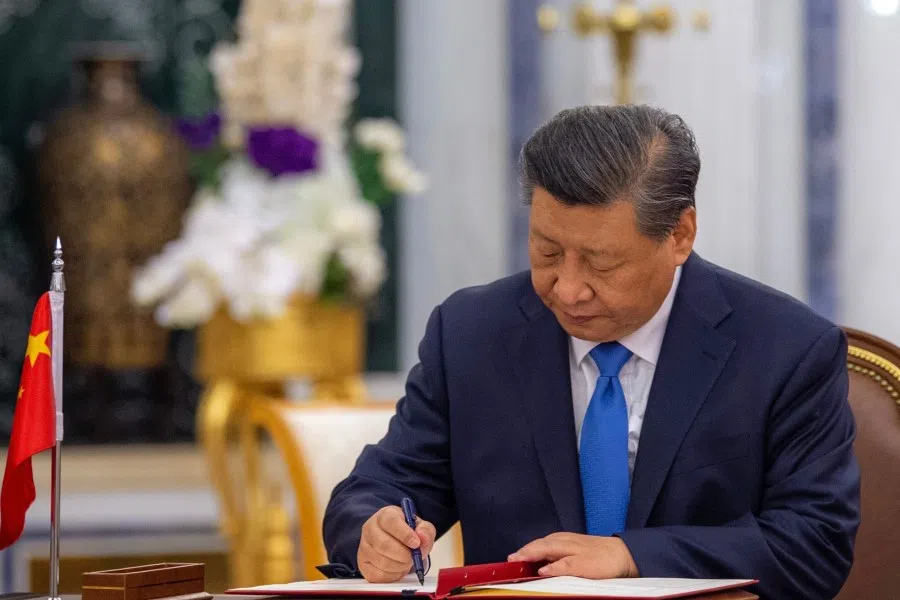
Global relations and changing dynamics
But it is important to emphasise that these new dynamics in China-Saudi energy relations are occurring in a changing geopolitical context, one that is marked by intensifying US-China competition. The comprehensive strategic partnership agreement signed during Xi's visit to the Kingdom, though anchored in and catalysed by the trade in crude oil and newer forms of energy cooperation, envisions collaboration on projects in advanced technology such as AI, cloud computing, and satellite infrastructure - at the very time that US-China technological decoupling is gaining pace.
The consolidation of the Sino-Saudi partnership reveals a longstanding US ally's determination to expand and diversify its foreign relations, to position itself between Washington and Beijing such that it can extract benefits from both, without alienating either.
It also stands as evidence of an ambitious and opportunistic "global China", intent on exploiting American missteps and vulnerabilities in the Middle East, though without upending the security order in the Gulf upon which its own access to stable energy supplies and economic well-being depends.
Importantly, it has come at a time when the US is struggling to regain the trust and confidence of Saudi Arabia and its other Gulf partners by providing them credible strategic reassurance even while seeking to counter China - the latter, a country with which those same partners' economic futures are tightly intertwined. Furthermore, it has created incentives for Asian countries such as Japan, which, like China, relies heavily on Middle Eastern oil/gas, to strengthen energy ties with Saudi Arabia and other Gulf producers.
All in all, it is clear that in a bilateral relationship that encompasses robust interaction across a wide range of economic sectors, Sino-Saudi energy cooperation still matters most - and continues to evolve.
Related: China's push towards green energy accelerated by security concerns | Sichuan power crunch sparks calls for rethink of coal in China's energy mix |Xi's Saudi visit: Middle powers uniting in a hierarchical world | US allies want good relations with China too | Will China become an 'empire by invitation' in the Middle East?


![[Big read] When the Arctic opens, what happens to Singapore?](https://cassette.sphdigital.com.sg/image/thinkchina/da65edebca34645c711c55e83e9877109b3c53847ebb1305573974651df1d13a)


![[Video] George Yeo: America’s deep pain — and why China won’t colonise](https://cassette.sphdigital.com.sg/image/thinkchina/15083e45d96c12390bdea6af2daf19fd9fcd875aa44a0f92796f34e3dad561cc)